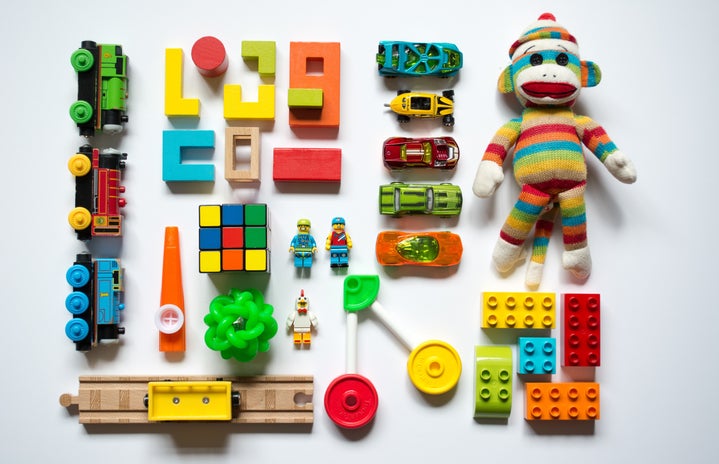TW: This article contains sensitive material that may not be suitable for all audiences.
April is Sexual Assault Awareness Month, which is a matter that I hold very close to my heart. When I was 8 years old, I was forced to grow up much faster than most children when I fell victim to child sexual exploitation at the hands of a family member, however, my story unfortunately is a similar story to many other children in America. According to RAINN, one in nine girls and one in 53 boys under the age of 18 will experience sexual abuse or assault at the hands of an adult with over 80% of all victims being female. I myself am not a parent, however, as someone who was also a victim of child sexual abuse, I recognize that it is important to give a voice to those who may be too young to ask for help. The effects of child sexual abuse can be long-lasting and affect the victim’s mental health. Victims are more likely than non-victims to experience mental health challenges such as depression, substance abuse issues, or Post Traumatic Stress Disorder (PTSD). Our most important role in this is creating an open, safe space for children to efficiently communicate with someone they trust.
Who are the perpetrators? Statistically, 90% of sexually abused children are abused by someone the child and/or family know. Although the majority of aggressors are male, women are not an exception. For these reasons, it is ever more important to be aware of signs and patterns that an individual may be exhibiting towards the child as well as recognizing situations where a child might be most vulnerable to abuse. The shame and secrecy surrounding child sexual abuse must end, as it allows the cycle of abuse to continue. We need children to know that ALL secrets can be told. They need to also be made aware that it is NEVER their fault. Nothing that a child wears, says, or does can cause mistreatment to happen. The fault only lies in the abuser.
Grooming and Lures
Grooming refers to deliberately establishing an emotional connection with a child to prepare them for abuse. Many children are lured into abuse with grooming behaviors where secrecy plays a significant role in this process. However, the grooming behaviors can also appear innocent and can include: gift-giving, special favors, money, regularly taking videos/pictures of the child, excessive communication, playful body contact, offering to babysit, overnight trips, and even sleepovers. Many children are sexually abused during sleepovers therefore, if you choose to allow sleepovers as a parent, ask about supervision, visitors, and sleeping arrangements. Give your child permission to contact you any time of the day or night and let them know that if they have an uneasy feeling about a situation, they don’t have to wait until something happens – they can tell you or another trusted adult right away. Discussing personal safety goes far in preventing sexual crimes.
Genital Terms
Child sexual abuse does include the contact and fondling of child genitalia. When children use the incorrect terminology of their genitalia (i.e: flower, muffin, etc.) they may not be understood and may be less likely to receive an appropriate or supportive response to their disclosure. The child using the incorrect terminology for their private parts can also create obstacles if an accusation is taken to court. Additionally, some sexual offenders avoid children who know the correct names for their genitals because this suggests these children have been educated about body safety and sexuality.
Media
Our youth today belongs to Gen Z, a generation where many do not know life without technology and social media is at their fingertips. We can use the media to make sexual assault relevant to keep children safe. Ask your child’s opinion on something happening on social media, in the news, in a new movie, or on a popular TV show. You could even watch an episode with them and ask follow-up questions. Asking their opinion shows them that you value their point of view and opens up the door for more conversation. Moreover, many predators look for vulnerable children online. You can also take this opportunity to discuss internet safety.
Personal Experience
Sharing your own experiences can make these conversations relevant and feel more real to others. If you don’t have an experience you feel comfortable sharing, you can tell a story about someone you know or as aforementioned, one in the media. Personally, my own journey with trauma was just that, a journey, but as a survivor, sharing my story with others created a conversation and normalizes a subject that has so much taboo surrounding it. We cannot make progress if we attach shame to abuse.
Talk About It
Talking about sexual exploitation can be uncomfortable for everyone, however sexual violence is a rampant pandemic that cannot be ignored. Unfortunately, there is no age limit to this harm. When I received help for my own trauma, I was much older because, for many years, I lived in fear and silence. I was referred to a child sexual assault advocacy center where I saw child victims who were just learning how to count, child victims who were just learning how to read. We never know who a perpetrator may be but educating children and ensuring that they are heard, makes all the difference. If you or someone you know is in immediate danger, please call 911. If you or someone you know would like to contact a sexual exploitation tip line or would like to make an anonymous report regarding child sexual abuse, click here.


